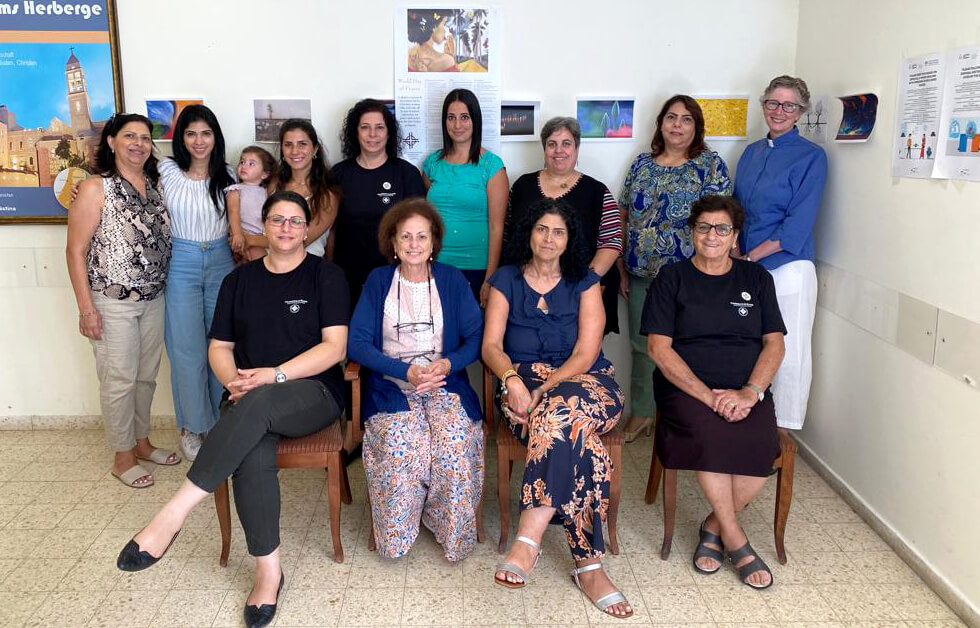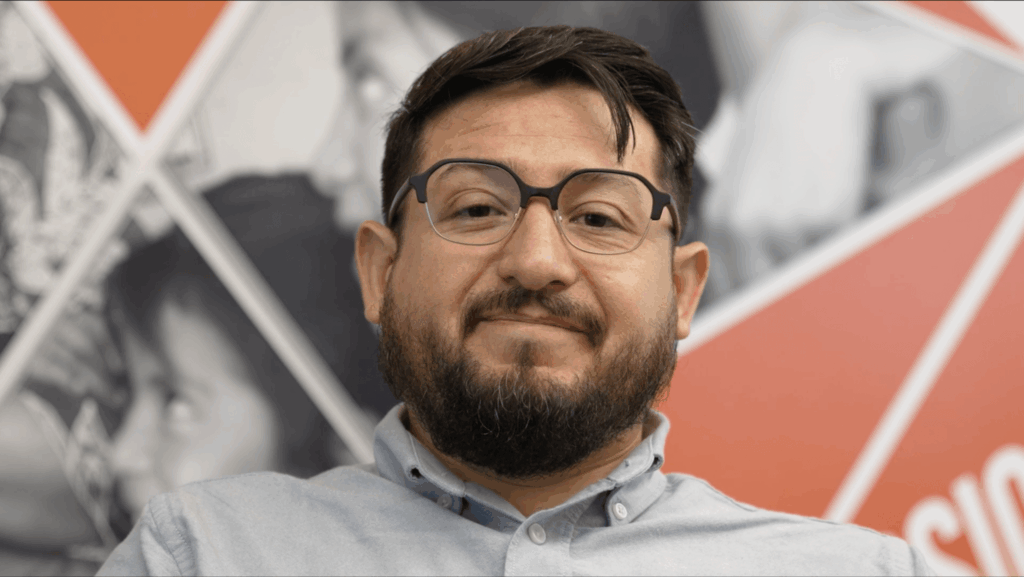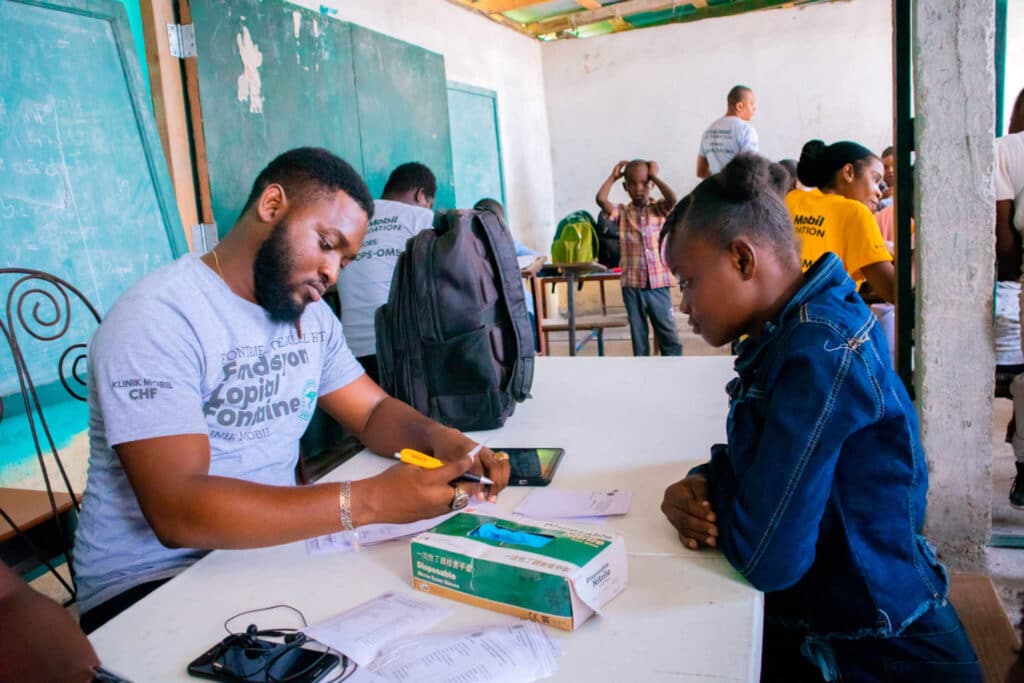ATLANTA — As Israel’s bombardment and ground invasion against the Gaza Strip approaches its fifth month, Palestinians across the region, in the West Bank and East Jerusalem, experience the loss of their jobs and the inability to move across checkpoints, or buy or sell food. They face a constant threat of harm and harassment, not because they are anywhere near Gaza, but because they are the Palestinians within reach.
Amid the scenes of overwhelming death and destruction, by God’s grace, small miracles happen each day.
Amir*, a Palestinian youth, finds it nearly impossible to cross the Palestinian/Israeli line to get to his school in a safe way. Yet, his school, community and United Methodists giving through the United Methodist Committee on Relief (UMCOR) created a way for him to continue his education. Hope Secondary School opened a remote learning station in his neighborhood and provided him with an electronic tablet and a place where wi-fi still works.
In this way, Amir has been able to rely on the safety of his own community and continue his education – a small but important miracle for him and other students.
“As we support our partners across the Middle East, we continue with faith and hope to encourage one another at this time,” said Roland Fernandes, general secretary of Global Ministries and UMCOR. “In the face of so much loss – Muslim, Christian and Jewish lives, the 28,000 men, women and children lost in Gaza, our hearts are breaking. But we believe that God is with those who suffer, and we are a small part of a much larger effort to work for peace in the region.”
No news is not good news
Gaza is bound by the Mediterranean Sea down its entire west coast and an Israeli fence more than 37-miles-long on its east side. All crossings but one into Israel have been closed by Israel since Oct. 7, 2023. There is a crossing into Cairo, Egypt, at Rafah to its south, which Israeli authorities close much of the time. Rafah is where hundreds of trucks wait in line for a chance to cross the border into Gaza to provide emergency aid. Food, water and medical supplies go unused until something happens to stop the bombardment and allow drivers to complete their mandate to deliver aid.
Just as nothing gets into Gaza, nothing and almost no one can get out. Even news is sparse because of communication blackouts, lack of electricity and fuel, and because more than 82 journalists reporting from inside Gaza have been killed.
David Wildman, Global Ministries’ United Nations and Middle East liaison, traveled to the region in December 2023 with a South African international solidarity delegation. They met with Palestinian Christian colleagues and human rights leaders across Palestine, Jordan and Egypt, as well as in Tel Aviv with the families of hostages being held by Hamas in Gaza. “There is a trickle of aid getting through,” Wildman said. “There should be more than 500 trucks going into Gaza every day, but there are at most 120 allowed to pass from Cairo to Rafah, but the little aid that gets in cannot reach all the people safely.”
The United Nations Relief and Works Agency for Palestinians in the Near East (UNRWA) has had its shelters in Gaza bombed and reports 152 of its workers have been killed in the current crisis, more than in any other crisis in the world.
On January 26, in a case for genocide brought against Israel by the South African government, the International Court of Justice (ICJ) at The Hague ordered Israel to stop its military actions that have caused so much death and destruction, allow complete, unhindered humanitarian access, prevent and punish ‘direct and public incitement to commit genocide,’ and preserve evidence of atrocities.
“We’re watching the world struggle with what to do to stop the genocide,” Wildman said. “There is a growing call around the world for an immediate cease-fire as a necessary first step. The only time since Oct. 7 that any hostages have been released was during the humanitarian pause in November, which saved lives. Palestinian prisoners were released, but since Oct. 7, more than 6300 Palestinians have been detained, often without charge. The message to us from families of hostages was: ‘release all for all’ – all hostages for all Palestinian prisoners.”
Among the members of the visiting delegation was also Bishop Ivan Abrahams of the Methodist Church of Southern Africa and the general secretary of the World Methodist Council. “We decided that Christmas can only have meaning for us if we heed the call from our siblings in Palestine, and we go and stand in solidarity with them. We felt strongly that we needed to break the silence, that we could not be complicit, that it was our moral implication and a biblical imperative to go and stand by those who suffer from such injustice.”
UMCOR joins ecumenical efforts for emergency response
UMCOR, like other humanitarian agencies, has found it difficult to get relief into Gaza. A long-time Global Ministries’ partner, the Department of Service to Palestinian Refugees (DSPR) of the Near East Council of Churches, has staff in Gaza that have been working with what they have, but they, like 90% of all Palestinians in Gaza, have been displaced. UMCOR affirms the ACT appeal for Gaza relief that will support the work of DSPR, but how soon the aid can reach Gaza is a real challenge. An emergency grant to provide 14,000 people with emergency food rations made it to the DSPR in Gaza early in the conflict.
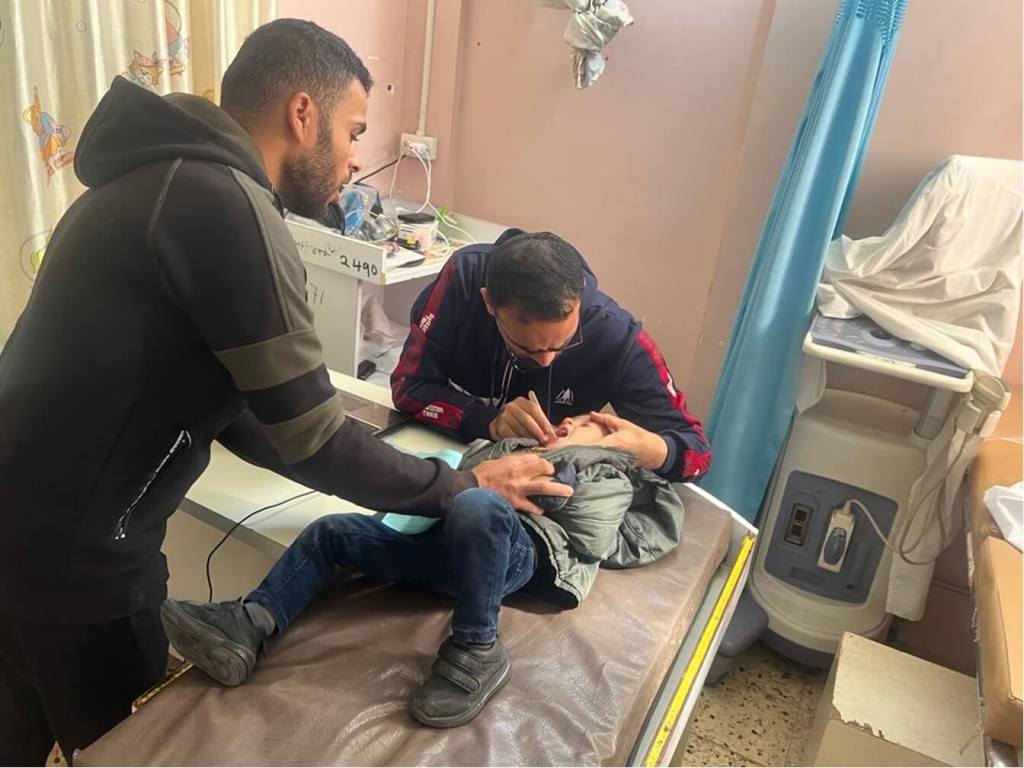
In efforts to support Palestinians in places like the West Bank and the Northern Galilee section of Israel, where most Palestinian citizens of Israel live, UMCOR supports partners that serve marginal and vulnerable Palestinian communities. Though many of these have specific areas of service to specific populations, they now find their communities need emergency help. Two grants to Hope Secondary School have helped Palestinian children and families affected by the repercussions of the war in Gaza.
A grant to Princess Basma Centre in Jerusalem served an urgent need for the development of a telemedicine program for Palestinian children with disabilities whose families confronted closed check-points when they tried to take their children to their medical appointments at the center. Another grant is in the works for the Four Homes of Mercy for Disabled Children.
A grant to the Al Quds Foundation provided counseling to children and youth in the Shufat Refugee Camp. This Palestinian camp, like others in the West Bank, has received multiple incursions by Israeli soldiers, sometimes in the middle of the night, during raids that end with young men being removed and jailed.
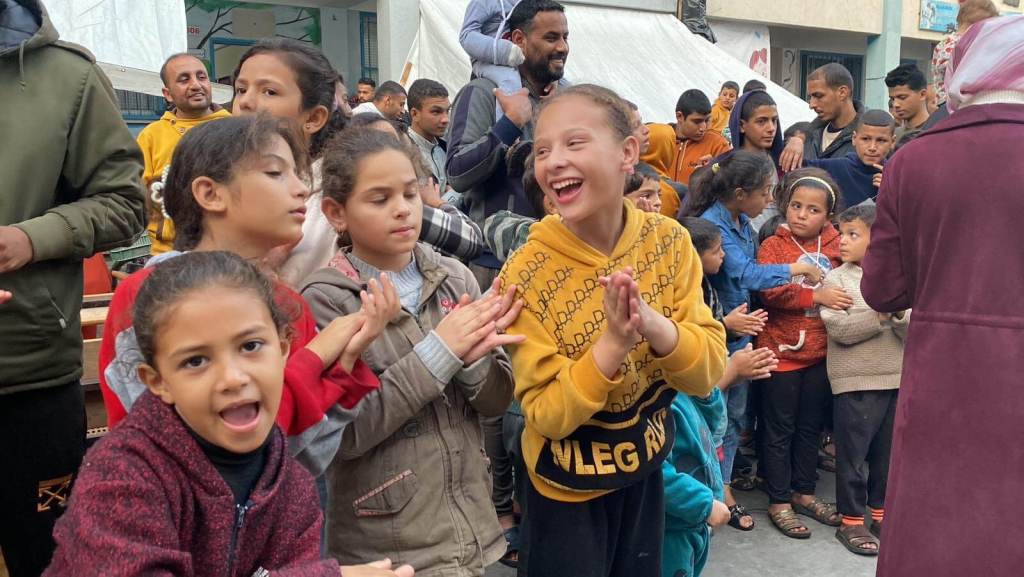
Hold them in prayer
The Rev. Jane Eesley, a Global Ministries missionary, serves as the advocacy coordinator with the Methodist Liaison Office in Jerusalem. “The United Methodist Church chose not to start another church but to support what is here through Greek Orthodox, Lutheran and Anglican churches,” she explained. “We trust in the body of Christ that is already here and in the indigenous Palestinian Christians. They are grateful for the ways we conduct a ‘servant ministry’ alongside them. A lot of people turn away and flee from suffering. It is important to be here among those who suffer.”
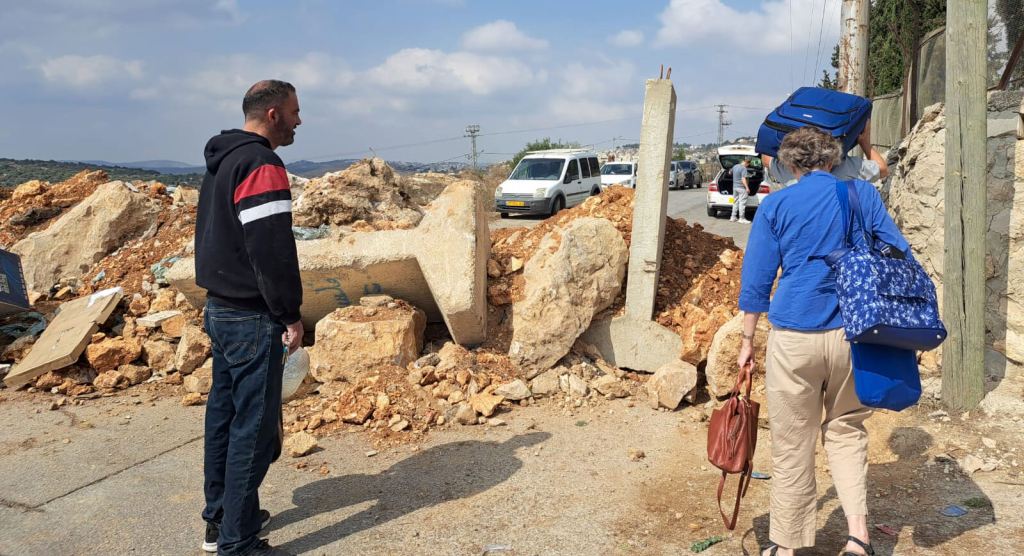
The Methodist Liaison Office offers a way for United Methodists to hear directly from Palestinians in the Holy Land through a weekly online gathering every Wed. at 1 p.m. EST. Register by sending an email request to office@MLOJerusalem.org and the office manager will send the link to join the hour-long meeting.
Another way to support Palestinians in the region is to continue to give through the Advance, as the projects in the Middle East are still operating. Though Gaza is the territory under bombardment, Palestinians in the West Bank and other places have experienced repercussions. The UMCOR International Disaster Response is another way to give.
Finally, Palestinian Christians have reached out to Christians across the world to call for an immediate cease-fire and to trust in God and pray for them. “They believe God will find a way we can’t even see,” noted Eesley. “Tell others about Palestinian Christians. There is great anxiety among them that before too long, there will be no more Palestinian Christians to witness in the place where Jesus was born.”
*Name changed to protect identity.
The Church of St. Paul and St. Andrew, UMC, in New York City, recorded a service of prayer and worship for the Middle East on January 30, 2024: A Spiritual Call and Response for Palestine. David Wildman talks about his trip to Palestine starting at minute 38.
Christie R. House is a consultant writer and editor with Global Ministries and UMCOR.
